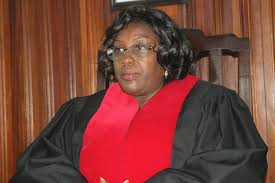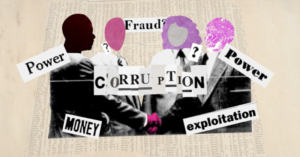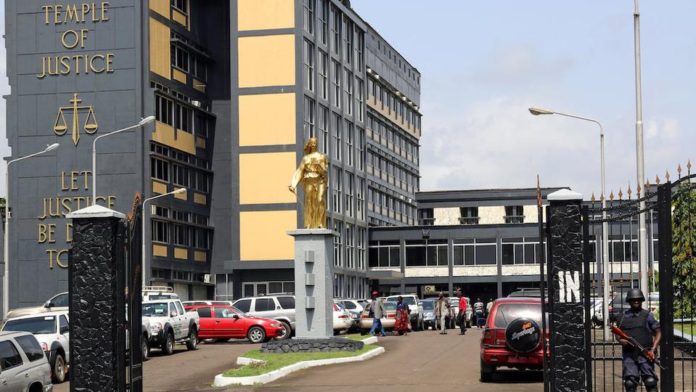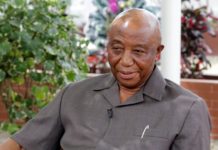This admission is stunning; not only because it is emanating from a High Court Justice who should know better than to “sugar coat” and condone the poison that is corruption but that she has finally accepted that a “top-to-bottom cleaning” and judicial reforms are way overdue.
Reported by the local Daily Observer newspaper last week, the paper quoted the admission of Associate Justice Jamesetta Wolokollie as she proxied for the Chief Justice at the opening term of Criminal Courts in Liberia. But her unfortunate and dismissive admission of corruption was cloaked in an attack on the media who always ended up taking the hit for the poor judgment and bad practices of government officials.
We wish to remind Justice Wolokollie of the Corruption profile of Liberia as reported in the US State Department Liberia Report on Human Rights Practices from 2016 – 2019.
The U.S. State Department in its 2016 Report indicated that, “…Some officials engaged in corrupt practices with impunity. Low pay for civil servants, minimal job training, and little judicial accountability exacerbated official corruption and contributed to a culture of impunity…”
Furthermore, the U.S. State Department’s 2017 Report emphasized that, “…Uneven application of the law, unequal distribution of personnel and resources, lack of training, and a poor road network remained problems throughout the judicial system. Corruption persisted in the legal system. Some judges accepted bribes to award damages in civil cases. Judges sometimes solicited bribes to try cases, grant bail to detainees, or acquit defendants in criminal cases. Defense attorneys and prosecutors sometimes suggested defendants pay bribes to secure favorable decisions from judges, prosecutors, and jurors, or to have court staff place cases on the docket for trial..”.

Besides, the 2018 Report of the U.S. State Department declared that, “…Corruption persisted in the legal system. Some judges accepted bribes to award damages in civil cases. Judges sometimes solicited bribes to try cases, grant bail to detainees, or acquit defendants in criminal cases. Defense attorneys and prosecutors sometimes suggested defendants pay bribes to secure favorable decisions from judges, prosecutors, and jurors, or to have court staff place cases on the docket for trial…”
Additionally, the recent 2019 Report from the U.S. Foreign Office noted that, “…The constitution provides for an independent judiciary, but judges and magistrates were subject to influence and engaged in corruption. Judges sometimes solicited bribes to try cases, grant bail to detainees, award damages in civil cases, or acquit defendants in criminal cases. Defense attorneys and prosecutors sometimes suggested defendants pay bribes to secure favorable decisions from judges, prosecutors, and jurors, or to have court staff place cases on the docket for trial…”
The annual consistency of the U.S. State Department profile of Liberia as it relates to corruption indicates that progress and improvement are elusive.

More disappointingly, a 2019 Global Corruption barometer survey done by Transparency International said that the perception among Liberians is that 49% of Government officials are corrupt and about 44% of most judges and magistrates are corrupt. This is a terrible indictment of the Liberian Judiciary.
The bottom line is that the Liberian Judiciary, as a part of national Government in Liberia is corrupt.
It would sound to reason if the Honorable Associate Justice Wolokollie would lay out the plan of the High Court to tackle the issue of corruption in its house, rather than try to minimize its pervasive nature.
Recommendations:
In order to begin the honest exercise of restoring confidence and integrity in Liberia’s judiciary, African Star and Liberia Public Radio proffer the following recommendations.
1. Undertake a critical evaluation of the public’s perception of the operation of the judicial system.
2. Identify the indicators of corruption in every sector of the judicial system
3. Identify the causes of corruption in the judicial system in Liberia
4. Develop a concept or model for judicial accountability
5. Develop and implement remedial actions to address corruption in the judiciary and
6. Design a process for evaluating progress made at judicial accountability and minimizing corruption
We remain committed to using our platforms to continue to serve well our role as “watchdogs” and conscience of the Liberian society and appeal to the Judiciary to become an active partner in fighting corruption at all levels. Liberians deserve a responsible and accountable Judiciary, and it is achievable when the Judiciary, especially those on the High Court understand and recognize the urgency of halting corruption which is now elevated to a pandemic level in the poor West African country.
This commentary is a collaboration between African Star and Liberia Public Radio.


























Comments are closed.